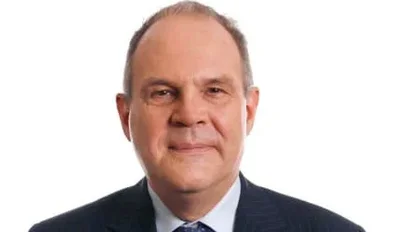
People diagnosed with mouth cancer in the UK may face more than £2,000 a year in extra expenses, according to new research from the Oral Health Foundation. The charity's Mouth Cancer Impact Report: From Diagnosis to Daily Life details how costs related to treatment, travel, and aftercare are creating financial strain for many patients and their families.
The report indicates that 70% of those surveyed experienced negative financial impacts due to mouth cancer, with over a quarter saying it led them into serious financial trouble. Patients reported cutting spending, using savings or retirement funds, or borrowing money to manage recovery costs.
The study found that 60% of survivors incurred additional dental bills—sometimes exceeding £500 annually—and 70% faced higher travel expenses for hospital visits. Nearly half spent more on specialist food or supplements required after treatment. In total, average annual out-of-pocket costs were around £1,100 per patient; for those most affected, these expenses surpassed £2,000 each year.
Dr Nigel Carter OBE, chief executive of the Oral Health Foundation, commented: “It is deeply unfair that people who have already endured the trauma of mouth cancer should face a financial penalty for trying to recover.
“The costs of specialist food, dental treatment and constant hospital visits quickly mount up, putting enormous pressure on patients and their families.
“No one should have to choose between their health and their financial security. Cancer care in the UK must do more to recognise and support those facing these hidden burdens.”
Other financial pressures mentioned by patients included increased insurance premiums and costs associated with replacing clothing after weight loss or paying privately for ongoing health issues caused by cancer.
Ben, a tongue cancer survivor referenced in the report, described difficulties accessing NHS support for long-term side effects such as fibrosis. He said: “The NHS are brilliant with the lymphatic massage, but when it comes to aftercare for scarring and fibrosis, there just isn’t proper support. You can get that treatment privately, but of course you have to pay for it - which is an extra expense.”
He also noted the impact on his employment prospects: “My ability to work has dropped off completely, which limits how much I earn. But to look after myself (post-cancer) I must spend even more money that I just don’t have.”
A previous study cited by the Oral Health Foundation found that about one-third of mouth cancer patients do not return to work following treatment.
Mr Mahesh Kumar, President of the Mouth Cancer Foundation and Maxillofacial Surgeon said: “Financial stress is one of the most overlooked aspects of cancer recovery. For many, returning to work is not possible, and day-to-day costs like dental care or travel can become overwhelming.
“We must build a system where patients are offered practical financial advice, grants and benefits guidance as part of their recovery – not left to find their own way."
This November during Mouth Cancer Action Month (https://www.dentalhealth.org/mouthcancer), the Oral Health Foundation is advocating for better access to financial advice and community grants for people living with mouth cancer. The group stresses that supporting survivors financially is essential for long-term wellbeing.
Mouth cancer diagnoses in the UK now exceed 11,000 cases annually while deaths remain above 3,000 per year—figures that could be improved through earlier detection (https://www.mouthcancer.org/). Symptoms such as persistent ulcers or lumps should be checked promptly by medical professionals.